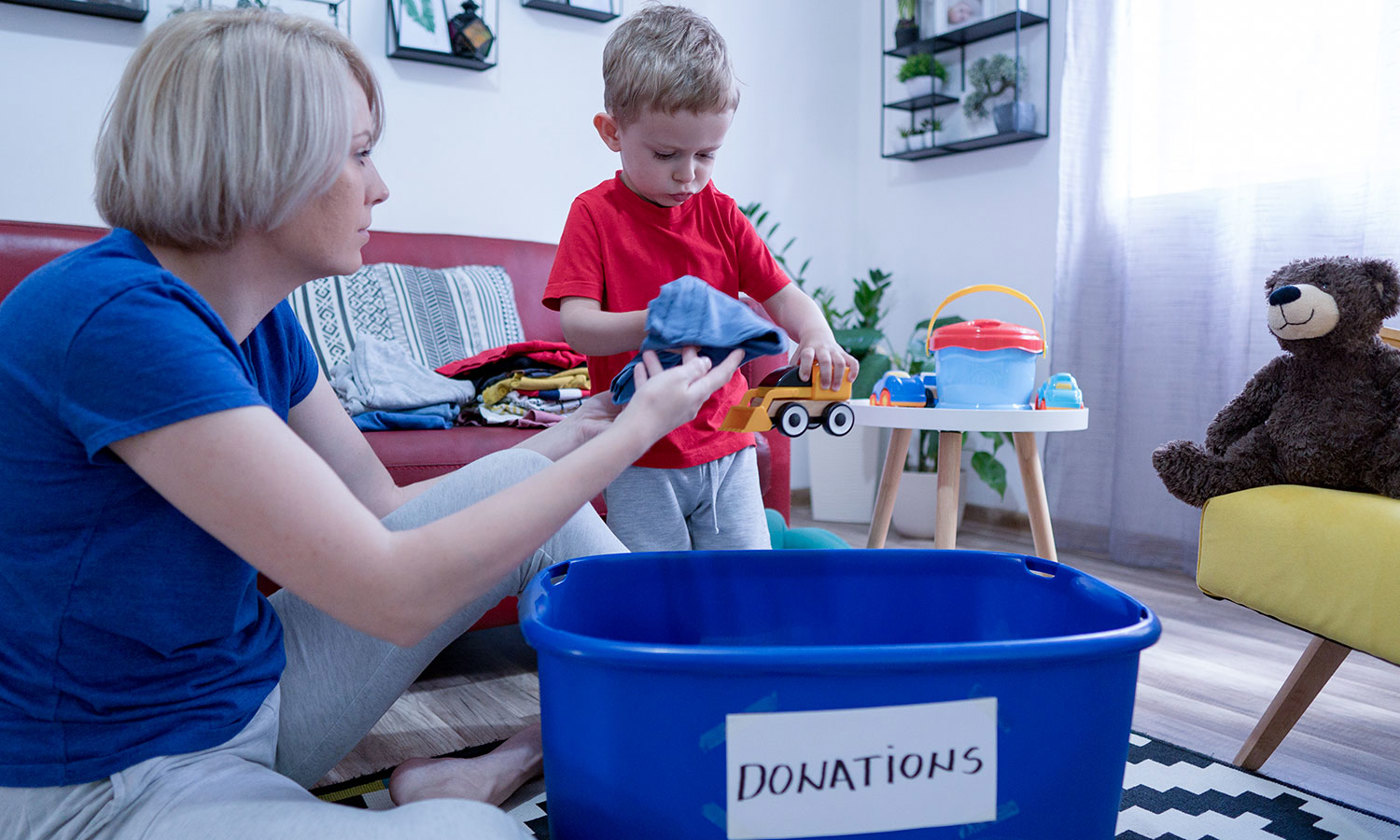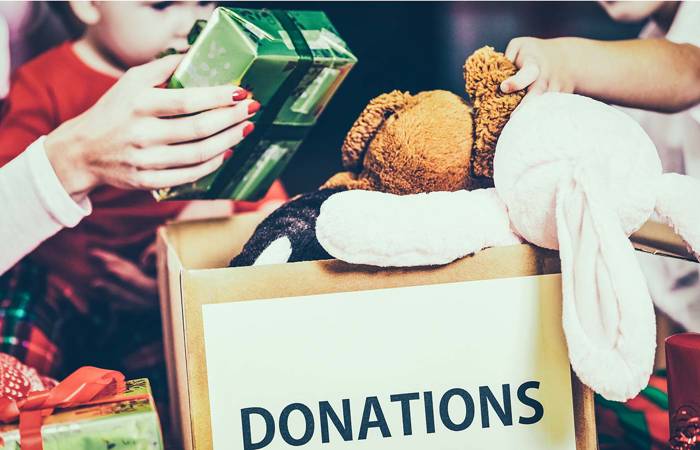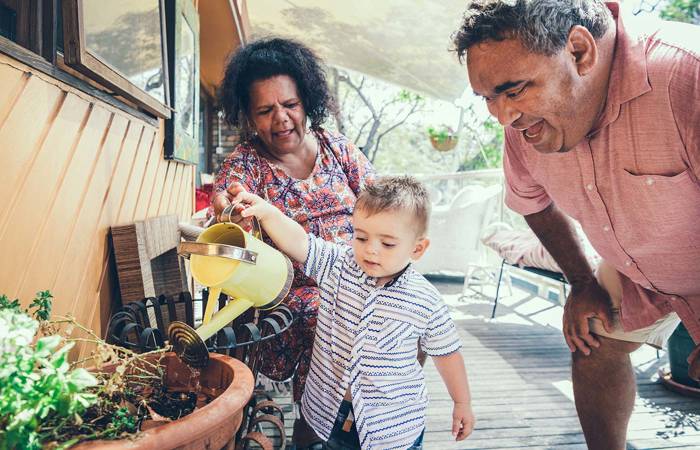Like what you see?
Sign up to receive more free parenting advice.
Thank you for subscribing to our newsletter!
Child Development

Credit: iStock.com/DusanManic
Involving young children in the act of giving at a young age allows traits like social awareness, empathy and kindness to be ingrained.
Most charities only provide volunteer opportunities for over 16-year-olds, which makes getting preschoolers involved in the act of giving a challenge.
“Unfortunately, it isn’t very common for young children to be involved with charities as they just don’t always have opportunities for that age group,” says Sarah Wade, CEO of Kids in Philanthropy (KiP).
“That is why KiP was created. We believe children of all ages and abilities should have the opportunity to volunteer. They just need the opportunity.”
KiP works with local organisations to creates meaningful opportunities for young volunteers.
“Our aim is for the charity to come away with something tangible to help their clients, while participants come away feeling uplifted with increased social awareness and empathy,” she adds.
By involving children in the act of giving at a young age, those traits of social awareness, empathy and kindness can be ingrained into their lives.
“If we could make acts of kindness or volunteering as habitual as children brushing their teeth, we can incorporate teaching children to think about other people as part of their daily routine,” Wade says.
“Ideally, that would be carried through to their adulthood and they would continue to give or get involved in philanthropy which not only positively impacts the community, but also the individual.”
The benefits of giving
The greatest benefit of involving young children in giving is building their social consciousness.
“You are essentially teaching them to think about others and become empathetic,” Wade explains.
“Children learn to accept all kinds of people and they also start to understand other people’s opinions, where they’ve come from and how to help them.
“It sounds like a lot for a preschooler to take in, but you’d be surprised.”
Another benefit is the aftereffects of helping others.
“When you do something nice for someone else, it makes you feel good about yourself,” adds Wade.
It also has potential flow-on effects, where if you do something nice for someone else, like a random act of kindness, the receiver may do something nice for someone else.
Another benefit is that it helps children understand the things they take for granted, like waking up in a warm bed or having a full pantry of food to chose from, are a privilege to some people.
Giving has long-term benefits too.
Researchers are finding that some of today’s teenagers are disconnected from the world, less tolerant of others, are very polarised and are unable to put themselves in other people’s shoes.
“Volunteering allows children to be connected to the larger social world and perhaps be exposed to people and situations they wouldn’t come across in their day-to-day,” Wade says.
“It can really build their empathy for others and understanding of other people’s beliefs.”
A report which reviewed 350 studies found that, “giving social support, either time, effort or goods, is associated with better overall health in older adults and volunteering is associated with delayed mortality”.
They also found that generosity has strong associations with psychological health and well-being.
Volunteering allows children to be connected to the larger social world and perhaps be exposed to people and situations they wouldn’t come across in their day-to-daySarah Wade
Stay up to date with the latest news and articles from First Five Years
Thank you for subscribing to our newsletter!
Making giving meaningful
Wade recommends parents scope out what social justice issues their children are most aligned with.
“It sounds like a big conversation to have with your preschooler, but if you ask them what they think is unfair about the world, you may be quite surprised about what they believe – perhaps things you’d never think they even noticed,” she says.
“Involving children right from the beginning of the decision making process helps to align their values to the cause and helps their future volunteering be more meaningful for them.”
In a 2013 study, the authors found that children who live in households who have a parent who talks to them about charity have a greater likelihood of donating to a charity compared to families who don’t discuss charitable giving.
Wade suggests that hands-on volunteering is the easiest way for a child to understand social injustice and feel good about doing something about it.
“That aftereffect of feeling good about it is more likely to drive them to want to do it again,” she adds.
Giving ideas for preschoolers and their parents
It’s best practice to ensure children are included, not only in the decision-making process, but also in the act of giving and seeing the outcome of their generosity.
KiP hold regular family-friendly sessions where children are involved in creating items for local organisations.
The following are some ideas of ways to get your preschooler involved in the act of giving:
- Local organisations put out a ‘wish list’ of items they need. Depending on the organisation, this could range from pre-loved toys to toiletry items to food items. Go through the list with your child and let them identify which they would like to purchase or collect (for example a canned food drive) and take them with you to drop the items off.
- Some organisations ask for care kits – either for women spending their first night in a domestic violence shelter or for foster children’s first night in a foster home. Your child can help put together these care kits and you can explain why people need them.
- Some organisations accept home-cooked meals and you can involve your child in cooking a few meals to drop off.
- Dog shelters often need help to walk their dogs. They can match the type of dog to you. Some dogs, who might be too overwhelmed to go for a walk, might just need a long cuddle session.
- Sticking with animal shelters, they also often put out wish lists that include old bedding, medication and treats.
- For children who love craft, some nursing homes accept drawings, paintings and craft to give to their residents. Depending on their visitor policy, another giving opportunity (particularly for those children who love to chat) is to visit and chat to their residents who don’t have any regular visitors.
- Volunteering for Meals on Wheels is a great opportunity for your child to help you deliver meals to people in your local area who need support.
- Clean up your local beach or park by collecting all the litter. This is a great way to engage children in an outdoor activity while explaining the effects of littering and the impact it has on the environment.
- Engage your child in random acts of kindness. For example, leaving money for the next person to get a free coffee, or helping someone to take their shopping to their car, or leaving a flower at your next-door neighbour’s doorstop. Giving doesn’t always have to be a big ‘thing’. Sometimes a small act goes a long way.






